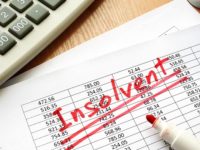Workplace advisory firm Employsure has revealed that calls to their employer advice line about workplace vaccinations, working from home safety and annual leave hoarding have skyrocketed since June.
They reported that last month they saw the biggest spike in vaccination-related calls to its advice line since the vaccine rollout began, with a 430 per cent increase, with the leading question being if the vaccine can be made mandatory or not, and whether or not it can result in legal trouble.
“As it stands, those who want their staff vaccinated may see themselves hit with an unfair dismissal claim if an employee were directed to be vaccinated and sacked as a result of refusing it,” Employsure employment relations specialist Josh Paterson said. “Employers have been told by the Fair Work Ombudsman however that in certain ‘high-risk’ industries, mandating a COVID-19 vaccination is possible if the direction is considered lawful and reasonable.
“Tracking an employee’s COVID-19 vaccination status and forcing staff to get a test are other issues also raising questions for employers,” Paterson added. “In Australia, employers can ask staff what their vaccination status is, and also suggest it to them, however, workers do not have to tell their employer if they have been vaccinated.
Paterson said that employers can justifiably require a negative test result prior to allowing a sick employee to return to work, and that requesting medical clearance by way of a negative test result for the disease is an entirely reasonable avenue for them to take.
Employsure received than 2400 calls related to working from home safety (WHS) issues in August, the highest number of calls on that topic since August 2020. The company noted that the figures were not just the result of the New South Wales lockdowns, but are also a consequence of snap lockdowns that have occurred in almost every other Australian state and territory since the end of June.
The main WHS concern employers called about were risk management, including whether or not they are liable if an employee or customer catches COVID-19 in their workplace, and what they need to do to ensure the safety of employees who work from home. Employsure advised employers to check in on their employees and urge their employees to reach out to fellow colleagues as well to maintain a social connection. According to Employsure, staying connected not only helps reduce stress and the feeling of isolation but can also boost productivity.
Calls relating to annual leave have spiked 51 per cent in July and August when compared with May and June. The main concern from employers is that over the past 18 months employees have built up vast amounts of annual leave, which can mean additional financial strain many small businesses cannot afford.
Employsure advised that employers can remind employees they are still entitled to an extension in annual leave flexibility under some awards. Until 31 December, employers can agree for staff to take their annual leave at half pay and double their time off work. In other words, the employee gets paid one week of their annual leave entitlement over a fortnight. Employers worried about employees accruing excessive amounts of leave should encourage staff to take the leave at half pay.
“Employers should urge their staff to take time off over the coming months or risk leave accrual becoming a financial burden to them,” Paterson said. “Employers should regularly encourage ‘mini breaks’ for employees to help avoid burnout and a bottleneck of leave requests. Many employees may not have taken a holiday since the pandemic began, and as such should be urged to take at least a few days off to rejuvenate themselves mentally.”















